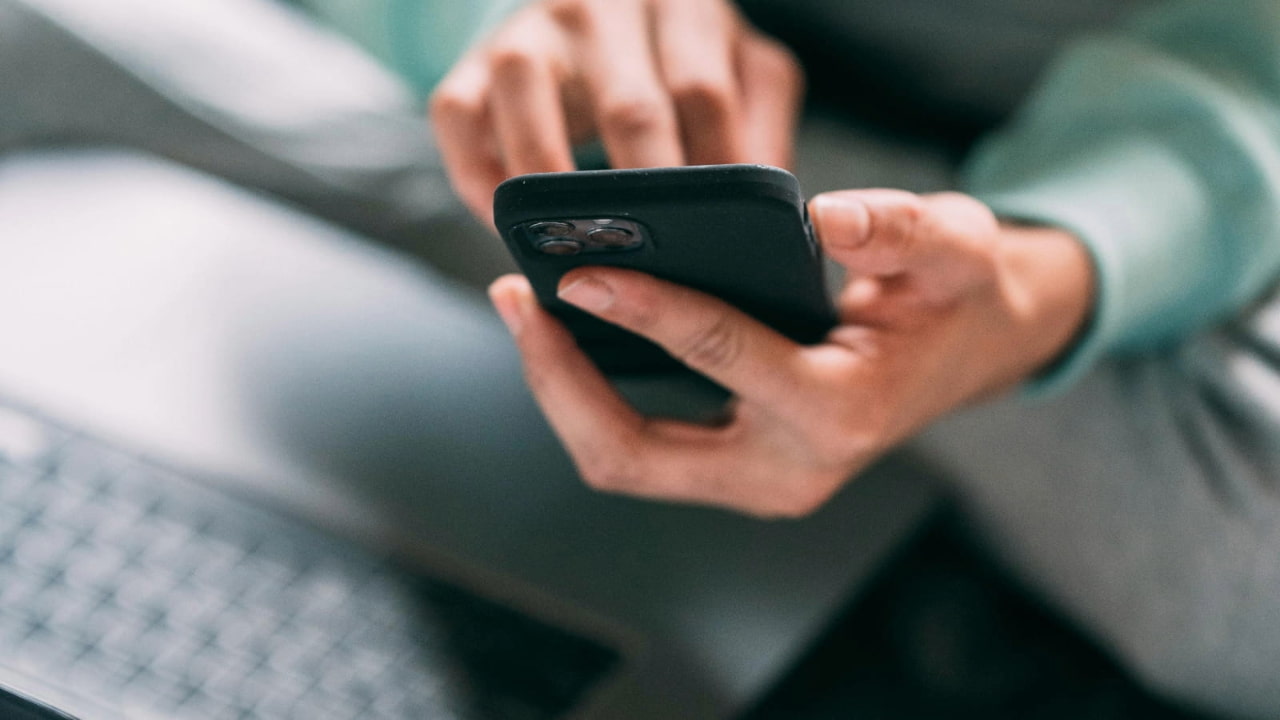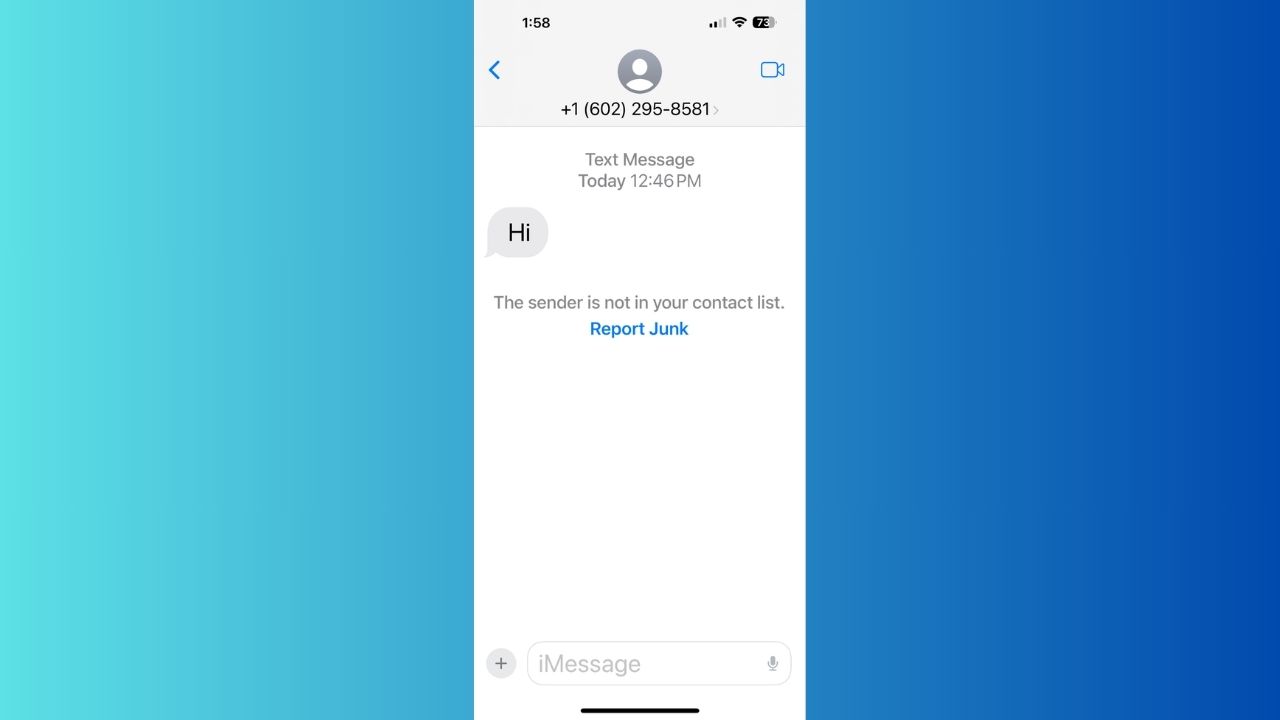Across the country, people are experiencing a sudden surge of anonymous messages that often begin with a simple “hello” or a similar greeting like “hi.” These unexpected communications can leave you feeling confused and even concerned about their origins. While this phenomenon is particularly prevalent on WhatsApp, it’s important to recognize that similar incidents are occurring with regular text messages as well.
Take Bruce from Lititz, PA, for example. He wrote to us asking,
Why all of a sudden am I receiving anonymous ‘hello’ messages on my WhatsApp?
Let’s explore the possible reasons behind these unsolicited messages, how they may have obtained your number, and what steps you can take to protect yourself from potential scams.
GET SECURITY ALERTS, EXPERT TIPS – SIGN UP FOR KURT’S NEWSLETTER – THE CYBERGUY REPORT HERE
Why is this happening?
One of the primary reasons for these messages is the increasing prevalence of spam and scam attempts. Cybercriminals are constantly evolving their tactics, and a seemingly innocent “hello” could be their latest strategy. Sometimes, it’s as simple as someone mistyping a number. It’s easy for messages to end up in the wrong inbox.
However, more often than not, these messages are the first step in a more elaborate phishing scheme. Scammers often start with a friendly greeting to build trust before attempting to extract personal information.

HOW TO RECLAIM YOUR PHONE AND BLOCK UNWELCOME POLITICAL TEXT MESSAGES
How did they get your number in the first place?
Receiving unexpected messages from unknown contacts can leave you wondering how they obtained your number. There are several ways this can happen. One common method is through data breaches, where personal information, including phone numbers, is leaked online.
Scammers can also acquire numbers through social media platforms, where users often share their contact details publicly. Additionally, if you’ve ever participated in contests or giveaways, your information may have been sold to third parties without your consent.
Lastly, it’s possible that someone you know inadvertently shared your number, leading to these unsolicited messages. Understanding these avenues can help you take proactive steps to protect your privacy and reduce the likelihood of receiving unwanted communications in the future.

HOW HACKERS CAN SEND TEXT MESSAGES FROM YOUR PHONE WITHOUT YOU KNOWING
How to protect yourself
With the rise of anonymous messages, it’s essential to take steps to safeguard your personal information and avoid potential scams. Here are six crucial measures you can take:
1) Block and report suspicious contacts
Don’t respond to these text messages, and block and report any suspicious messages. Here’s how to do it on different platforms:
On iPhone:
- Open the chat with the suspicious contact
- Tap the contact’s number at the top of the screen
- Then click the info menu
- Scroll down and select Block Caller
- Choose Block Contact
On Android:
Settings may vary depending on your Android phone’s manufacturer
- Open the conversation with the suspicious contact
- Tap the three-dot menu in the upper-right corner
- Select More or Details
- Click Block & report scam
- Tap Ok to confirm your decision
On WhatsApp:
- Open the conversation and click the contact name
- Scroll down and select Block
- Click Block to confirm
2) Have strong antivirus software
Don’t click on any links within these text messages, as they may contain malicious software. The best way to safeguard yourself from malicious links that install malware, potentially accessing your private information, is to install strong antivirus software on all your devices. This protection can also alert you to phishing emails and ransomware scams, keeping your personal information and digital assets safe.
My top pick is TotalAV, and you can get a limited-time deal for CyberGuy readers: $19 your first year (80% off) for the TotalAV Antivirus Pro package.
3) Regularly update your passwords
Ensure your accounts are secure by using strong, unique passwords and updating them regularly. Consider using a password manager to generate and store complex passwords. This can help protect your information in case of a data breach.
4) Keep your devices updated
Regularly update your smartphone’s operating system and apps. These updates often include crucial security patches that protect against the latest threats.
5) Invest in personal data removal services
While no service promises to remove all your data from the internet, having a removal service is great if you want to constantly monitor and automate the process of removing your information from hundreds of sites continuously over a longer period of time.
A service like Incogni can help you remove all this personal information from the internet. It has a very clean interface and will scan 195 websites for your information and remove it and keep it removed.
Special for CyberGuy Readers (60% off): Incogni offers A 30-day money-back guarantee and then charges a special CyberGuy discount only through the links in this article of $5.99/month for one person (billed annually) or $13.19/month for your family (up to 4 people) on their annual plan and get a fully automated data removal service, including recurring removal from 190+ data brokers. You can add up to 3 emails, 3 home addresses and 3 phone numbers (U.S. citizens only) and have them removed from data-broker databases. I recommend the family plan because it works out to only $4.12 per person per month for year-round coverage. It’s an excellent service, and I highly recommend at least trying it out to see what it’s all about.
Get Incogni for your family (up to 4 people) here
6) Be cautious with personal information
Refrain from posting your phone number on public forums, social media platforms, or websites lacking robust privacy measures. Scammers often scour these platforms for personal information to target potential victims.
Also, only provide your contact information to reputable organizations and trusted individuals. Before entering your phone number on any website, ensure it is legitimate and secure. Look for signs such as HTTPS in the URL and read reviews or feedback from other users.
BEWARE OF NEW ANDROID THREAT TARGETING YOUR PHOTOS AND TEXTS WITHOUT EVEN OPENING THEM
Kurt’s key takeaways
The rise of anonymous messages can feel unsettling. While a simple “hello” might seem harmless, it often signals the start of more insidious tactics from scammers. By understanding how these messages arise and taking proactive steps to protect your personal information, you can significantly reduce your risk of falling victim to scams.
Have you experienced receiving anonymous messages like these? Share your story with us and let us know how you handled it in the comments below.
FOR MORE OF MY TIPS, SUBSCRIBE TO MY FREE CYBERGUY REPORT NEWSLETTER HERE




8 comments
I get a few a those random hellos or can we be friends on Facebook. Or I get some (Facebook) that say I really like your posts on send me a friend request. I just don’t respond to them.
I seem to be getting this type a message every 0ne to two weeks. As I have a lot of people who are part of my business that will try to contact me, or have referrals contact me, I am sometimes temped to open. It never turs out to be someone I know. This is on my sms texts.
Additionally, mostly when I get a call, and my caller ID doesn’t recognize, It’s a sales call that I would not want, or a solicitation. They now know how the make that call have your local area code, so you may be tempted to open. I am on the do not call list already. Sometimes it may be someone that is legit, like an appointment confirmation, dentist, dr. insurance etc. So sometimes I take a chance. But mostly it’s bogus. As soon as I hear a hesitation on picking up that call, Like it’s a robcall transferring you to a sales person, I hang up.
This may be another topic for you. These legit companies should be identified in your caller ID!
Hi Pete – check out our story about this topic here.
Enter the giveaway by signing up for my free newsletter.
Some of the texts will say something like “I am sorry your water heater is broken, what a bummer.” like they are some sort of friend and want your reply.
I get a lot of emails from faux postal delivery, where they say the item cannot be delivered until I send them a complete address. I just ignore them too.
Enter the giveaway by signing up for my free newsletter.
I enjoy playing with them and try to get their information. I often try to sell them crypto exchange “opportunities” or help them find Jesus. They tend to leave me alone after my pitch.
When you click on a facebook name you have options to click on posts, photos or reels. If you click on photos, your whole photo album appears. How do you prevent this as people probably dont want their total photo album made public to anyone who clicks on your photo.
Hi Geoff, please see our coverage of this topic here.
I got one asking if I could watch her dogs at the last minute. After a few back and forth messages of telling her/him they had the wrong number, they asked to connect with me on Whatsapp. I don’t have WhatsApp! Blocked!